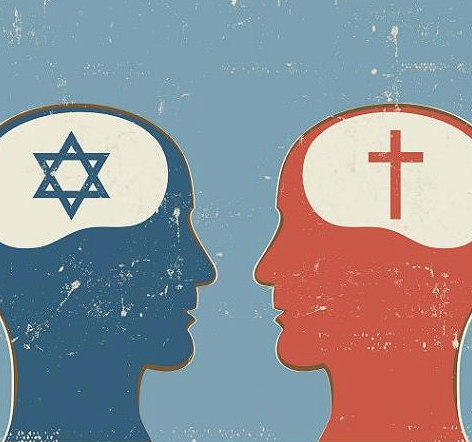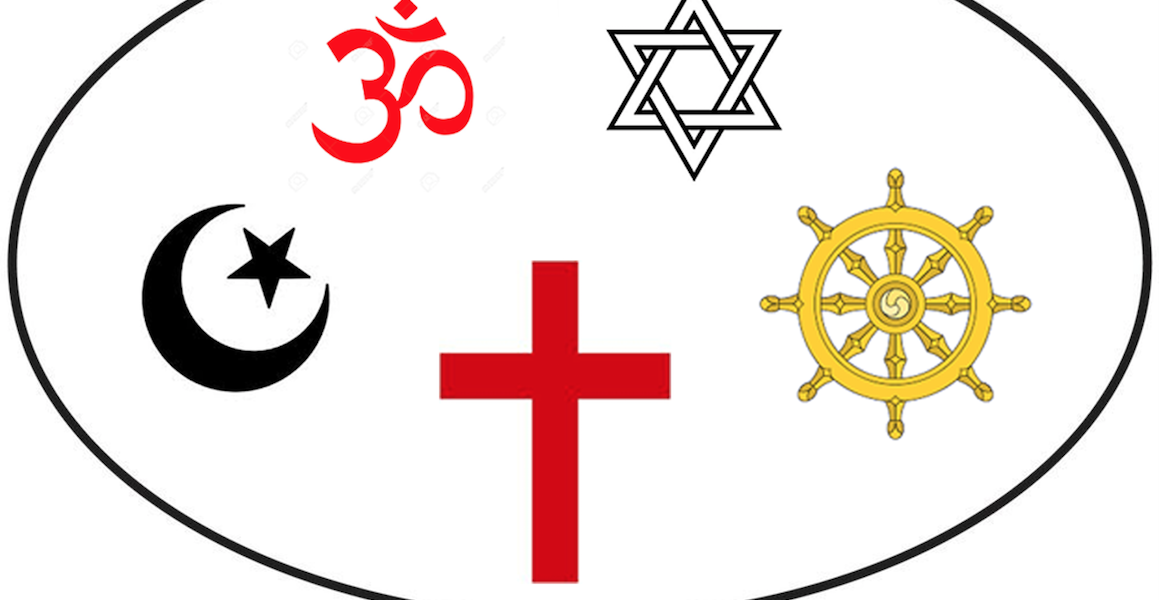By Avery Dasher
According to Pew Research Center, the word “God” can be found “…in each of the 50 state constitutions and nearly 200 times overall.” Religion has been woven into the foundations of the United States, and according to the Public Religion Research Institute, religion prevails in an estimated three in four Americans. While religious adherence remains common in the country, younger generations have demonstrated a reluctance to religious involvement. According to the Pacific Standard Magazine, “Gen Z’s ties to religion seem even weaker than Millennials… and most think church attendance is unimportant.” The Pacific Standard Magazine reported that 21 percent of Gen Z identifies as atheist and 15 percent identifies as agnostic.
“Gen Z’s ties to religion seem even weaker than Millennials…and most think church attendance is unimportant”
Pacific standard magazine
According to City-Data.com, between the years of 2000 and 2010 there was an increase in both individuals who adhered to a religion, and those who did not, but the inclination in those who did not adhere to religion grew dramatically, almost doubling in size. The increase in practicing individuals of Mainline Protestant, Evangelical Protestant, Catholic, other unspecified religions, and Black Protestant (which is its own category because of a history of oppression, causing black Protestants to have a different outlook on religious practice, thus often being referred to as their own type of Protestant, according to Religion in Public) included in the data was less than ten thousand per religion. This is a far less substantial expansion compared to the increase of roughly 50 thousand non-religious individuals. In a small sample of 29 teens, 28 being current students at Ponte Vedra High School, or graduates of PVHS, 12 stated they did not claim any religion. Of the 17 who were religiously adherent, ten stated to rarely attend any religious service such as holidays, prayer, mediation, church etc. and six claimed their religious practice existed in their everyday or weekly lives.
Jordan Rosenblum is Jewish and a senior at PVHS. She said, “I’m definitely not as religious as my parents… I would say I know less than 50 percent about it but that’s just mostly because I wasn’t raised in the synagogue and I was not practicing it every single day.” Rosenblum says her involvement in Judaism has relied heavily on her parent’s influence, as they carry out Jewish traditions in their household, but do not participate in heavy religious involvement. Senior, Laila Engl, said: “Growing up I was born Christian, but as I started getting older, I felt like my faith was deteriorating… I practice Christianity on special Christian holidays because my family practices it. I was introduced to spirituality and other ways which deal with manifestation and meditation, and I highly resonate with that.” While Laila and her sister, sophomore Natalia Engl have both been raised in the same household, Natalia’s view on religion differ quite noticeably. Natalia said, “I am Catholic. I try to pray daily and go to church every week. I was born into a Catholic family, and I was baptized as a baby. When I’m feeling stressed out or lonely, I know that Jesus is with me, and I can talk to God anytime.” While some propose that much of the adolescent’s religious beliefs are inherited from their parents, and the way religion was approached in their household, in Laila’s circumstances her religious beliefs were found through exploration and what seemed coherent to her. While Natalia too understands her religious freedoms, the Catholic religion is what captivated her interest and mind. An anonymous senior at PVHS said he was introduced to Christianity by his parents and now practices “Every Sunday and before meals.” He said his motivation for his practice is “The changes that god has made in my life since I’ve accepted him as my lord and savior.”

A PVHS senior, who asked to remain anonymous said, “I was raised in two separate houses where one was extremely religious and the other wasn’t at all. When I was younger, I complied with the religion because it was all I knew, and I was scared of what would happen if I didn’t. Most of all I just wanted to fit in with my family. In middle school I started to question the morality and overall ideology of Christianity and I realized it wasn’t right for me. It took a while for me to accept this because I knew if my dad found out he would be horrified. As I grew more and more comfortable with my individuality, I learned a lot about myself, and found that I was drawn to the idea of ending up with a woman, although it was always strictly taught against in my church… Over time I grew angry with the excessive rules and expectations set by someone that lived thousands of years ago. I was tired of being seen as someone’s project, another blasphemous soul that needed saving. Now, I see religion as a coping mechanism almost, I think a lot of people use it as a way to find meaning in life or comfort in death. It’s up to everyone to create their own purpose but punishing people for what they can’t control is unjustified and detrimental to the harmony of humanity.”
Along with a decrease in support for organized religion among younger generations, there has been a rise in the LGBTQ+ community among this generation. According to Gallup, 5.6 percent of United States adults identify as LBGTQ+, and according to Washington Post, one in six Gen Z adults identify as LGBTQ+. Another, who asked to remain anonymous PVHS senior interviewed said, “My entire family is Roman Catholic, and are very religious. I guess I always had trouble truly believing myself that one being could be capable and willing to care for us humans as much as I was taught to believe, what pushed me away from religion is not having concrete proof of the existence of God, and learning that there are several other religions that exist that have beliefs and rules to so many other things… Though, all my life I still occasionally pray to whatever may be watching over me. It was always hard for me to believe the Christian interpretation of what God is… I always used to think to myself as a kid that “God” is so much more than one being, that created everything for us in order to test us so we can reach something higher… Little things as I aged made me question more and more if religion was just something a human race collectively made up in order to cope with the thought of after life and the meaning to life, and things like the Bible were made to encourage people to do what was at the time, righteous.”
Religious adherence has not only declined among U.S. teens, but also among U.S. adults. According to a data table presented by Pew Research Center, the percentage of individuals who identified as religiously affiliated decreased 6.6 percent from 2007 to 2014. A different article from the Pew Research Center found a correlation between religious beliefs of teens and their parents or legal guardians, stating, “…of approximately 1,800 teenagers who were surveyed alongside one of their parents, about half the teens (48 percent) say they have “all the same” religious beliefs as their parent.”





